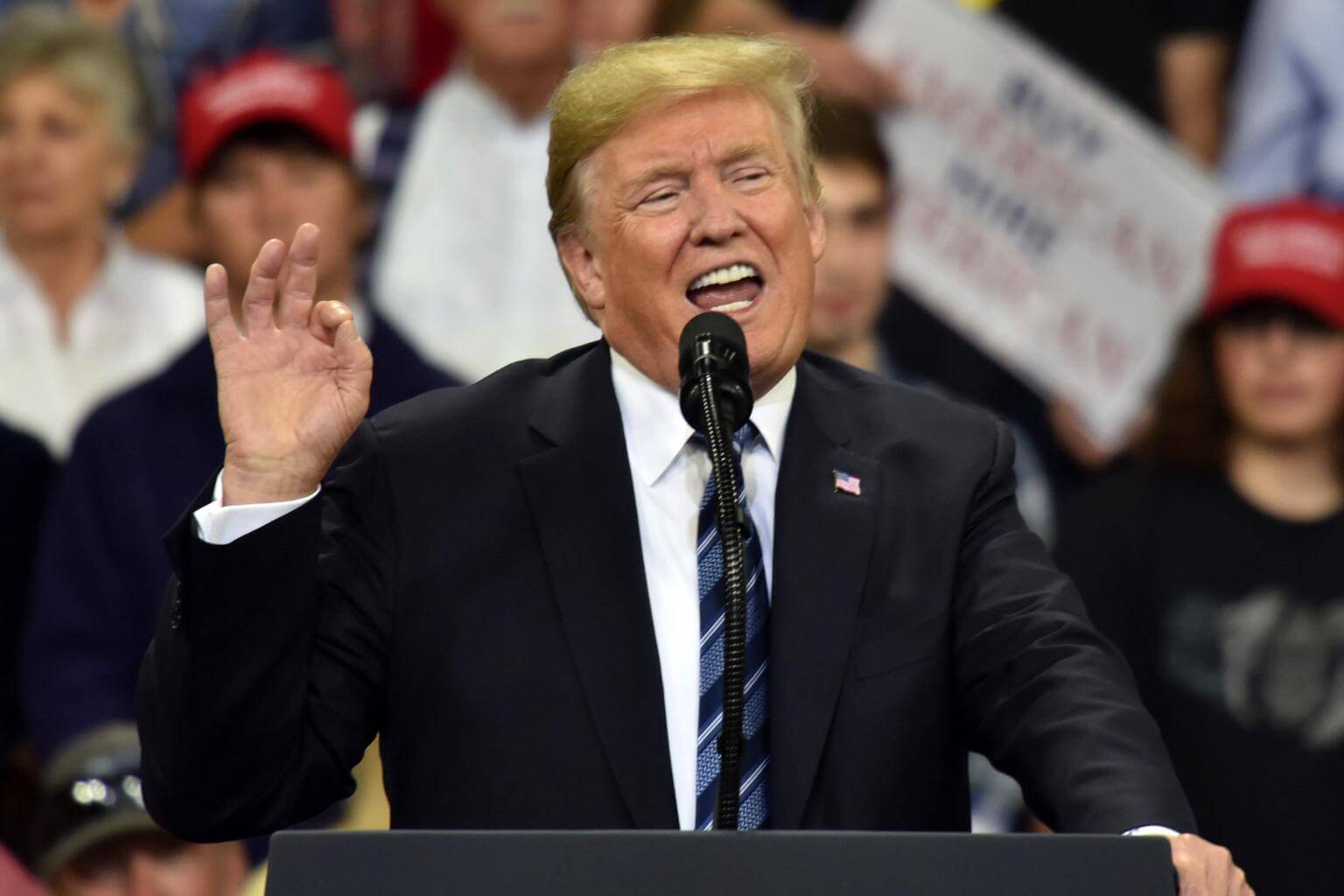News analysis
New York Times anonymous op-ed: Donald Trump's feud with critical media deepens
Sign up now: Get ST's newsletters delivered to your inbox

PHOTO: AFP
Follow topic:
WASHINGTON - Less than nine weeks before a crucial mid-term congressional election, United States President Donald Trump's feud with critical mainstream media has deepened.
Thursday (Sept 6) saw over 20 top Trump officials scramble to deny authorship of an op-ed in the New York Times - by an anonymous "senior administration official" - stating in essence that officials have been working quietly to circumvent and rein in an uninformed and capricious President.
Mr Trump hit back via Twitter and at a campaign rally at the 12,000-seat Rimrock Auto Arena in Billings, Montana, on Thursday evening, suggesting the author of the op-ed may have committed treason.
"We've reached an all-time low," he told the crowd. "Unelected Deep State operatives who defy the voters to push their own secret agendas are truly a threat to democracy itself."
"For the sake of our national security, the New York Times should publish his name," he insisted.
Because of the inherent ambiguity of anonymity - the term "senior administration official" could apply to hundreds, not all close to the President - and the New York Times' antagonistic relationship with the President, the op-ed has poured fuel on the narratives of both sides of the political divide, either confirming a Deep State conspiracy to destroy the President, or confirming that he is unfit for office.
In the end, the verdict will boil down to what voters believe.
The op-ed appeared to corroborate at least part of the picture emerging from a 448-page book Fear: Trump In The White House, due for release next Tuesday (Sept 11).
Written by veteran investigative journalist and Washington Post associate editor Bob Woodward, extracts released thus far paint a picture of a White House with a mercurial President at the centre of internal tension and chaos.
The book and the op-ed have triggered more than chatter about the possibility of a decision by the Cabinet under the 25th Amendment to remove the President from office on grounds that he is unfit.
Massachusetts Senator Elisabeth Warren tweeted: "If senior officials believe the president is unfit, they should stop hiding behind anonymous op-eds and leaking info to Bob Woodward, and do what the Constitution demands they do: invoke the 25th Amendment and remove this president from office."
But President Trump and Vice-President Mike Pence lambasted the author of the op-ed, and the New York Times.
"The Deep State and the Left, and their vehicle, the Fake News Media, are going Crazy," Mr Trump tweeted.
Mr Pence told reporters: "Anyone who would write an anonymous editorial smearing this President who has provided extraordinary leadership to this country should not be working for this administration. They ought to do the honourable thing and... resign."
The New York Times' decision to publish the op-ed will likely be debated for years.
Meanwhile, Trump supporters will buy the President's argument, Dr Charles Bullock, professor of political science at the University of Georgia, told The Straits Times.
Independent voters, and those who voted grudgingly for Mr Trump in 2016, may pause, Dr Bullock said.
But "for Democrats, it confirms their worst suspicions".
Dr Glenn Altschuler, professor of American Studies at Cornell University, told The Straits Times: "It is unlikely that this episode, as serious as it is, is anything more than an ever deepening confirmation of a narrative of a chaotic and potentially dangerous Trump administration."
"There will always be those... who see these developments as part of a Deep State conspiracy," he said.
"But for those who are not true Trump believers, I think it is quite likely that these events will reinforce the Democrats' argument (that) a check on the President is a valid and increasingly urgent necessity for the good of the country."
Some of that concern was seen on the third day of a contentious Senate confirmation hearing for Mr Trump's nominee for Justice of the Supreme Court, Judge Brett Kavanaugh, who was grilled by Democrat Party Senators over his opinion on key issues including whether he believes a sitting President can be indicted. (His answer in essence: no, but it depends.)
But the Republican Party risks losing momentum ahead of the Nov 6 mid-terms, in which the Democrat Party will try and seize back a majority in the House of Representatives - something which historically, and on current polling, it has a good chance of doing.
"We have a seemingly endless stream of stories about a White House that is at war with itself and a White House staff who are at war with the President," Dr Altschuler said.
"Every week that goes by that the Trump administration and the Republicans are unable to sustain or develop momentum for their candidates is a lost week for the Republicans and a significant gain for the Democrats."

